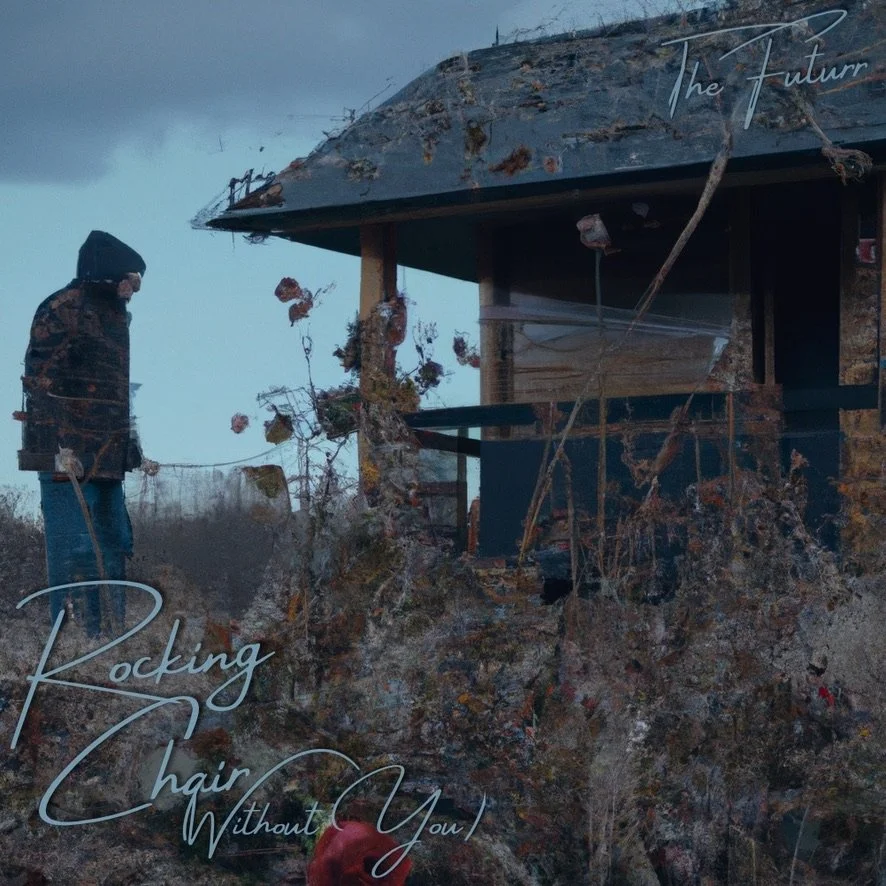Feature: TheFuturr Decodes “Rocking Chair (Without You)”
How does "Rocking Chair (Without You)" reflect your musical journey and growth as an artist?
The song “Rocking Chair” to me is a direct reflection of my journey and growth as an artist and evolving my sound. For years I tended to cater my creations toward my hip-hop/rap interests. Although I still allowed my versatility of genres to be displayed, it was most commonly with a hip-hop/rap focus behind it. Except for my rock & alternative work, which later was part of the reason why I decided to change my genre focus to Indie/Alternative pop and rock. This song was my first 100% effort attempt at creating for and understanding my new genre. I challenged myself to truly understand the work that I wanted to create, and this song put that challenge on display along with my musical abilities.
Were there any challenges or breakthrough moments during the songwriting process for "Rocking Chair (Without You)?"
The writing process for this track was full of challenges and breakthroughs. I wrote and recorded it over a year ago, but, over time, through developing a better understanding of my genre and comprehensive writing, I decided to rewrite the story within the lyrics to make it more understandable. I discovered how phrases and lyrics appeal to specific people who have experienced similar feelings to what I describe in my music and how to cause those emotional reactions and connections to my art.
What did you enjoy most about making "Rocking Chair (Without You)?"
Making this song was a good time throughout. It was a new obstacle for me. Though, yes, I have made rock music before, this time was about the understanding of what rock music truly is and why people are fans of the genre specifically. The part that I enjoyed most about creating “Rocking Chair” was the development of the cinematic story I wrote into the song. Through the lyrics, you are directly able to visualize the scene & setting.
Can you walk us through your creative process when writing and composing music?
My Creative process at times jumps and skips through steps, but typically, I follow a similar routine of creation. First, I brainstorm ideas by either thinking of new material or reviewing old notes I’ve created to base my lyrics on. Second, I film a concept video where I essentially beatbox what I want the instrumental and all of its components to be. Third, I work along with a producer of mine to bring that concept video to life or get in contact with another outside producer I see being able to produce my idea best. Fourth, I spend about 30 minutes making a “hum vocal” to give myself melodic ideas for every vocal layer. Fifth, I start to lay out the story/concept I have in mind into an intricate story or poem, making sure every detail within the story connects as a whole and is conclusive as a narrative. From there, I reword the story/poem to form around the melodies of the “hum vocal” layer and go through many ways to emphasize certain phrases and enunciate certain words for a stronger appeal of emotion factor. The rest of the process is all engineering and post-production along with a repeat of all the steps until I come to a final creation. I can do this process almost instantaneously at times when the full concept and vision are fully developed in my mind, but at other times it can take months to visualize my idea fully.
What role do you feel emotions play in your music, and how do you channel them into your performances?
I believe emotions play a huge part in all music, not just my work. I enjoy writing songs that strike your emotions deeply and make you feel and think, as from my personal experience, the artists that I have enjoyed the most and become the biggest fan of are the ones who have done a similar thing to me. Emotions drive a connection between me as the artist and the world as the listener, they bridge the gap between thinking you’re alone in your mind and feeling understood, and to be understood is something we all want. I create music from my experiences and my life in hopes that others can relate to what I say, if not the exact circumstance, then at least the feelings that came along with it. I’m not big on the concept where I, as the artist, am the untouchable centerpiece and any fans/supporters are just onlookers to the side. in my opinion, that makes it hard to build a deep-rooted connection or will break down what has been built so far. When emotions, relatability, and understanding come into play, it creates something more meaningful between both sides and that’s the value I hold in emotions and how I hope to build my community. Fans and Artists are Friends in my eyes, and sometimes all we need is a friend who gets us.
